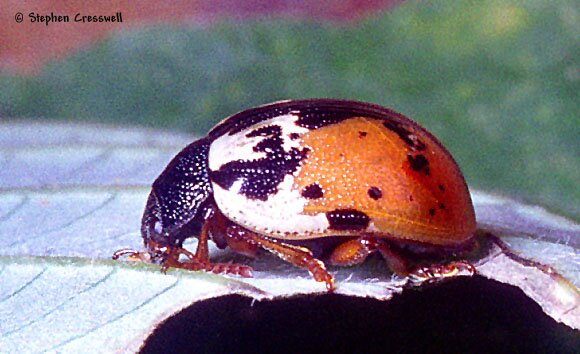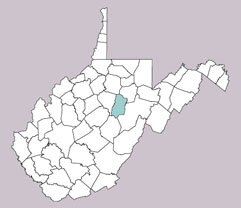
Family: Chrysomelidae
Subfamily: Chrysomelinae
Length: circa 8 mm
Like Calligrapha philadelphica, this species has Dogwood species as its host plants. The heavy markings and the presence of an orange color at the rear of the elytra easily separate this beetle from Calligrapha philadelphica, though.
Calligrapha rowena seems to be scarce in West Virginia and elsewhere. The beetles photographed here were in a group of perhaps fifteen beetles feeding on Dogwood in Upshur County on 22 September 2002. This was the first record of Calligrapha rowena in West Virginia. Visits to the same area in subsequent years failed to turn up any of these beetles.
In a 1966 study, J.G. Robertson reported that some colonies had males and females in roughly equal numbers, but one site yielded 7 males and 52 females, while another yielded 16 females and no males. In certain other species of Calligrapha males are unknown, and the beetles reproduce by parthenogenesis.

Left: A different individual from thesame aggregation as the above photo, showing slightly different markings.
Calligrapha rowena has been observed to copulate with Calligrapha philadelphica, suggesting these two dogwood-feeders are closely related.
 |
|
|

|



Insects of West Virginia